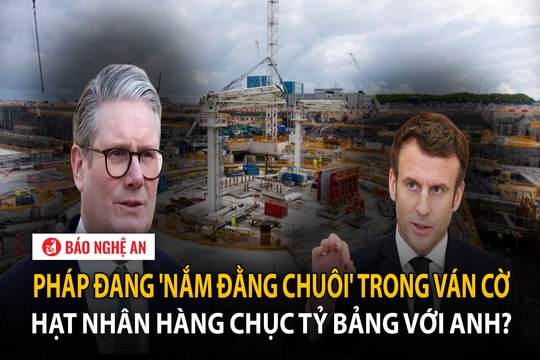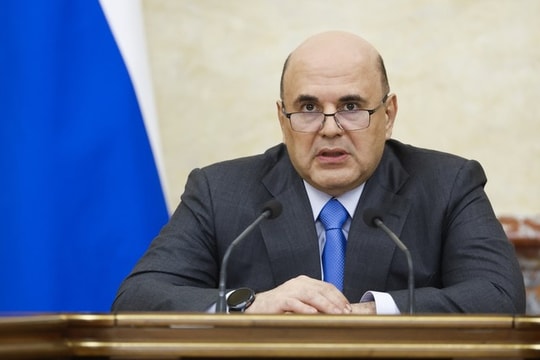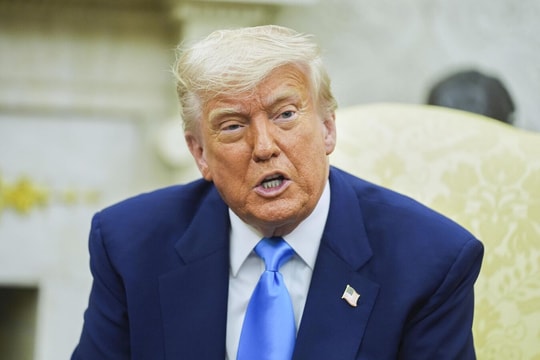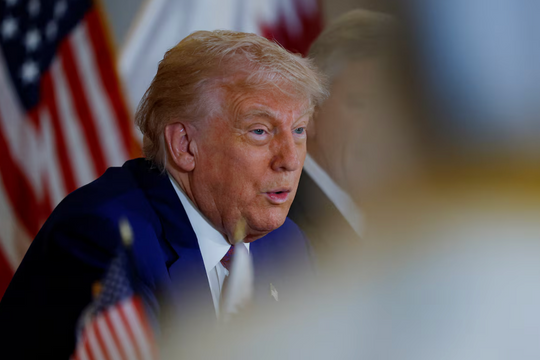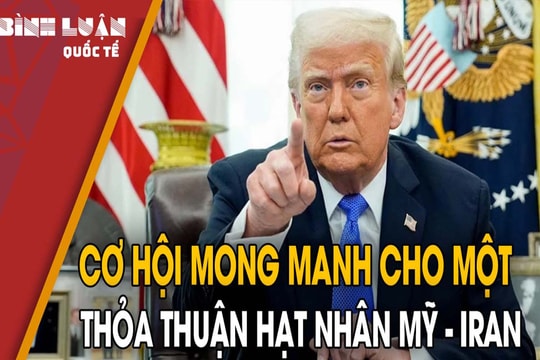President Donald Trump continues to destroy an Obama 'legacy'?
On October 5, the US Washington Post, citing sources familiar with the White House's strategy toward Iran, said that next week, US President Donald Trump will announce his "withdrawal" from the nuclear agreement between Iran and the P5+1 group (including the US, Russia, UK, France, China and Germany), known as the Joint Comprehensive Plan of Action (JCPOA), saying it is not in Washington's interests, and will refer the matter to the US Congress.
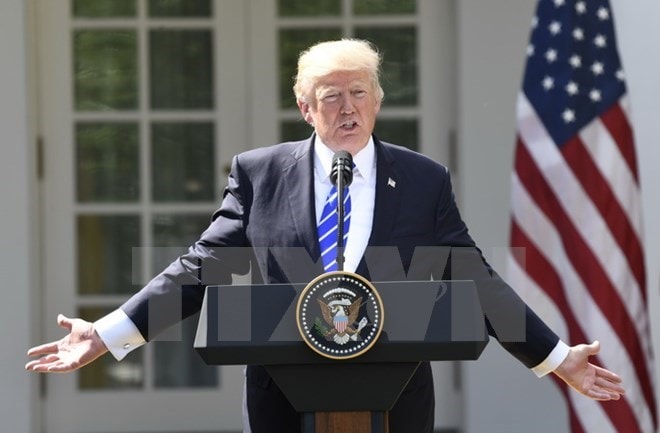 |
| US President Donald Trump. (Photo: AFP/VNA) |
The move would mark the first step in a process that could in fact lead to a resumption of US sanctions on Iran. Mr Trump is expected to deliver a speech on October 12 outlining a broader strategy for dealing with Iran, which Washington blames for destabilising the Middle East.
According to two of the people, Mr. Trump’s senior security advisers agreed in recent weeks to recommend that the US president “withdraw” the agreement by October 15. Mr. Trump’s move will start a 60-day process in the US Congress to consider Washington’s next steps.
Previously, at the 72nd session of the United Nations General Assembly, US President Donald Trump criticized the JCPOA, calling it "one of the worst deals ever."
The JCPOA was signed in July 2015 after years of tense relations between Iran and the West, under which Tehran limited its uranium enrichment activities in exchange for the lifting of international sanctions.
After taking office in January 2017, a year after the JCPOA entered into force, the Trump administration has sought reasons to unilaterally withdraw or cancel the agreement. Meanwhile, all parties to the JCPOA, except the United States, have emphasized that the Iran nuclear deal must be maintained.
Iranian officials have condemned Washington's anti-JCPOA statements, affirming that through the joint committee overseeing the implementation of the JCPOA, Iran has monitored and found that the US has not fully fulfilled its commitments to the nuclear deal.
In a related development, on the same day, the head of the Atomic Energy Organization of Iran (AEOI), Mr. Ali Akbar Salehi, declared that the nuclear agreement between Iran and world powers reached in 2015 cannot be renegotiated.
According to Iran's Press TV channel, speaking in Rome (Italy), Mr. Salehi said Tehran has repeatedly emphasized that the nuclear agreement between Iran and the P5+1 Group (including the US, Russia, UK, France, China and Germany), known as the Joint Comprehensive Plan of Action (JCPOA), is not negotiable.
Referring to some US administration officials' "insistence" on renegotiating the JCPOA or withdrawing from the deal, Mr. Salehi said some wanted the JCPOA to be renegotiated on technical grounds, but he reiterated that it cannot be renegotiated.
According to the head of AEOI, if the US leaves the JCPOA, and other countries follow suit, the JCPOA will definitely collapse, but if only the US does so, the committee overseeing the implementation of the JCPOA should make a decision on this issue. If the deal collapses, Iran will introduce more advanced nuclear technology than before the deal.
Earlier, on September 18, Mr. Salehi accused the US of trying to sabotage the landmark 2015 agreement reached between Tehran and major powers. Speaking at a meeting at the headquarters of the International Atomic Energy Agency (IAEA) of the United Nations in Vienna, Austria, Mr. Salehi said that the Washington administration's open hostility and the application of obstructive measures and policies aimed at sabotaging the nuclear deal. Mr. Salehi stressed that these were contrary to the content and spirit of the agreement.
Iranian Foreign Minister Mohammad Javad Zarif has also said that the nuclear deal between Tehran and the P5+1 group is "not negotiable." Zarif has warned that Tehran will only comply with the terms of the nuclear deal if other parties meet their commitments under the deal.
Iranian President Hassan Rouhani warned on September 19 that the US would lose the trust of the international community if Washington abandoned the nuclear deal with Tehran./.
According to Vietnam+
| RELATED NEWS |
|---|

.jpg)
